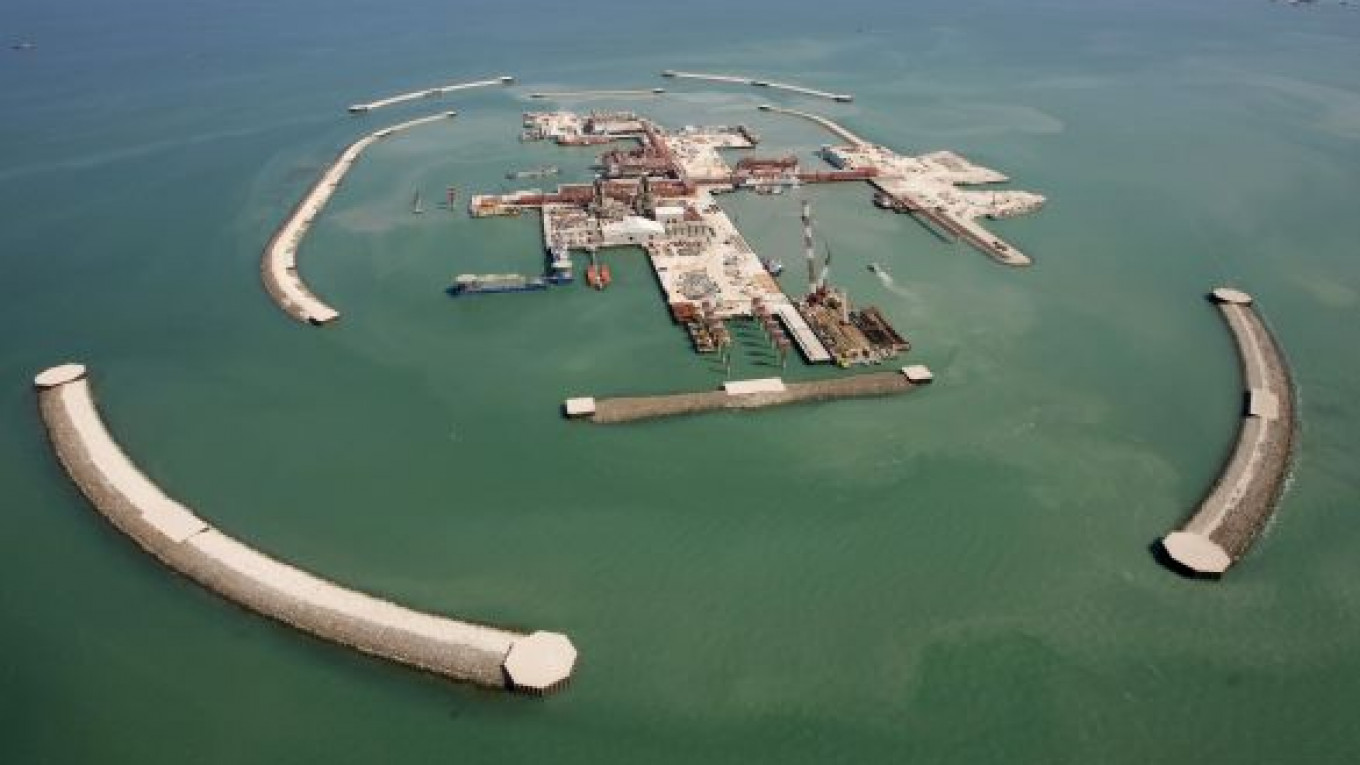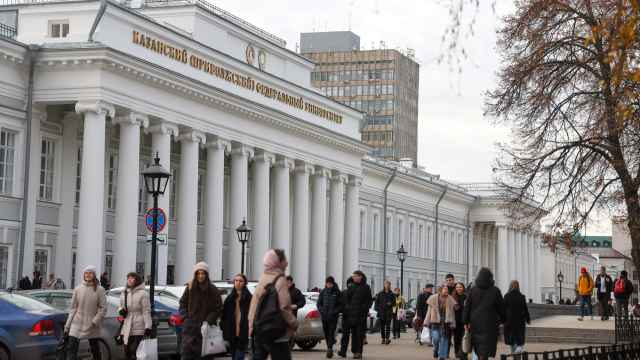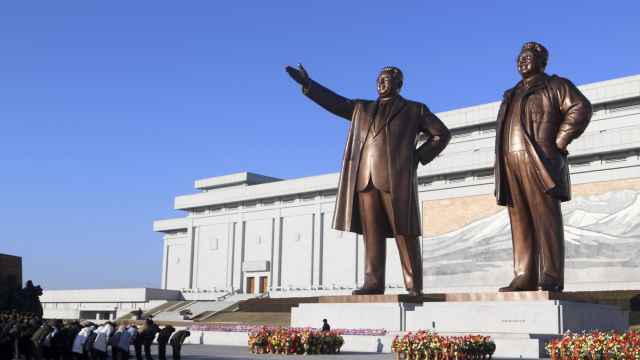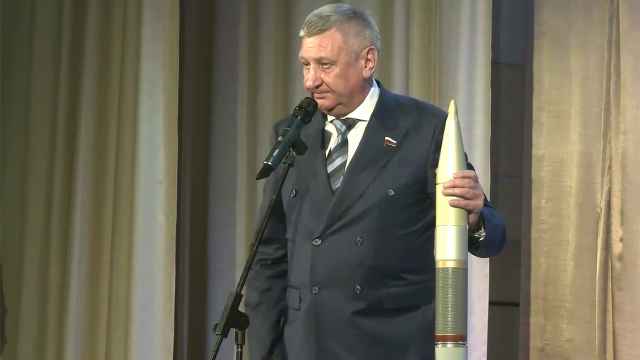MOSCOW/ALMATY — Russia has emerged as the surprise favorite to ship the bulk of crude from Kazakhstan's Kashagan field, capitalizing on a regional pipeline bottleneck that is adding to headaches for the world's most expensive oil development.
Costs for Kashagan have soared because the Eni-led consortium developing it revised expenditures up fivefold in the last decade — to almost $50 billion — as a result of building artificial islands and infrastructure in the Caspian Sea.
Production is due to start later this year almost 10 years later than planned and ultimately reach 1 million barrels per day (bpd), or more than 1 percent of global oil output.
Debates about oil-evacuation options from the landlocked sea have run on for a decade, with Russian pipeline monopoly Transneft initially among the outsiders.
Other routes considered by Eni and its partners Exxon Mobil, Royal Dutch Shell and Total included a BP-led Azeri-Turkish link, a Chevron-led Russian-Kazakh CPC pipeline to the Black Sea and a route to China.
Over the past few years, several of those options have become less likely, making Transneft the unexpected frontrunner to ship the bulk of oil from Kashagan, at least during the first years, industry sources said.
Several sources among oil majors said a large portion of oil from Kashagan would go via Transneft's Atyrau-Samara pipeline, connecting Kazakhstan to Russian trunk pipelines and allowing oil exports via the Black Sea, Baltic Sea or Central Europe.
"They are asking to ship up to 5 million tons [100,000 bpd] via Atyrau from September. We said yes," a Transneft source said. The company declined official comment.
The Atyrau-Samara pipeline currently ships 300,000 bpd, has a capacity of 400,000 bpd and can be boosted to 600,000 bpd with modest investments, the source said.
Sources said some Kashagan volumes, which could amount to 140,000 bpd next year, gradually rising to 300,000 bpd, may still go toward other routes such as CPC or China.
LONG ROAD
Russia has long suffered a decline in its transit role for oil from Kazakhstan, its former Soviet neighbor, with global oil majors and then China gaining significant influence.
Transporting the first Kashagan crude via Russian pipelines will allow Transneft to earn significant fees, but is also important in determining where the oil emerges in world markets.
Transneft has the flexibility of sending oil to Europe's north or south. The Transneft source and traders said most oil would flow to the Mediterranean, which has seen a fall in supplies due to sanctions on Iran and Iraqi outages.
It remains unclear whether Transneft will ship Kashagan oil intact or mix it with Russia's main export grade, Urals.
"We can separate flows without mixing them up," the Transneft source said. Traders, however, said they expected to get Urals.
Complicating preparations is the fact that the market has yet to see the quality of Kashagan oil, which is believed to be light but containing unwelcome parts such as mercaptans, leading to high crude viscosity.
Quality is the main reason why the currently underused BP-led pipeline to the Turkish port of Ceyhan has refrained from taking Kashagan because it is shipping high-quality Azeri Light.
Chevron's CPC pipeline would accept Kashagan's quality but its own expansion has been repeatedly delayed.
CPC was meant to boost capacity from 600,000 bpd to 800,000 bpd this year and to 1.3 million bpd at a later stage but it is unclear when those plans could materialize.
Once completed, CPC will start taking Kashagan, especially from majors such as Exxon and Shell — which are big shareholders in CPC and the field — and Kazakh state oil firm KazMunaiGas.
"CPC is a priority route for KazMunaiGas," said a source at the firm, adding that some volumes could be sent by tanker via the Caspian Sea and then by rail to the Mediterranean.
China National Petroleum Corp, which hopes to buy into Kashagan after ConocoPhillips sells out, will most likely want to send oil to China using modest amounts of spare pipeline capacity.
"If output at Kashagan hits 300,000 barrels per day, it is clear that all these capacities taken together will not be enough," a source in Kazakhstan said.
"But first you have to launch output at the field," he added.
Several market sources have suggested the consortium could be forced to postpone the commercial start to next year. Eni has insisted it would start before October as otherwise it would have to pay fines to Kazakhstan.
A Message from The Moscow Times:
Dear readers,
We are facing unprecedented challenges. Russia's Prosecutor General's Office has designated The Moscow Times as an "undesirable" organization, criminalizing our work and putting our staff at risk of prosecution. This follows our earlier unjust labeling as a "foreign agent."
These actions are direct attempts to silence independent journalism in Russia. The authorities claim our work "discredits the decisions of the Russian leadership." We see things differently: we strive to provide accurate, unbiased reporting on Russia.
We, the journalists of The Moscow Times, refuse to be silenced. But to continue our work, we need your help.
Your support, no matter how small, makes a world of difference. If you can, please support us monthly starting from just $2. It's quick to set up, and every contribution makes a significant impact.
By supporting The Moscow Times, you're defending open, independent journalism in the face of repression. Thank you for standing with us.
Remind me later.






